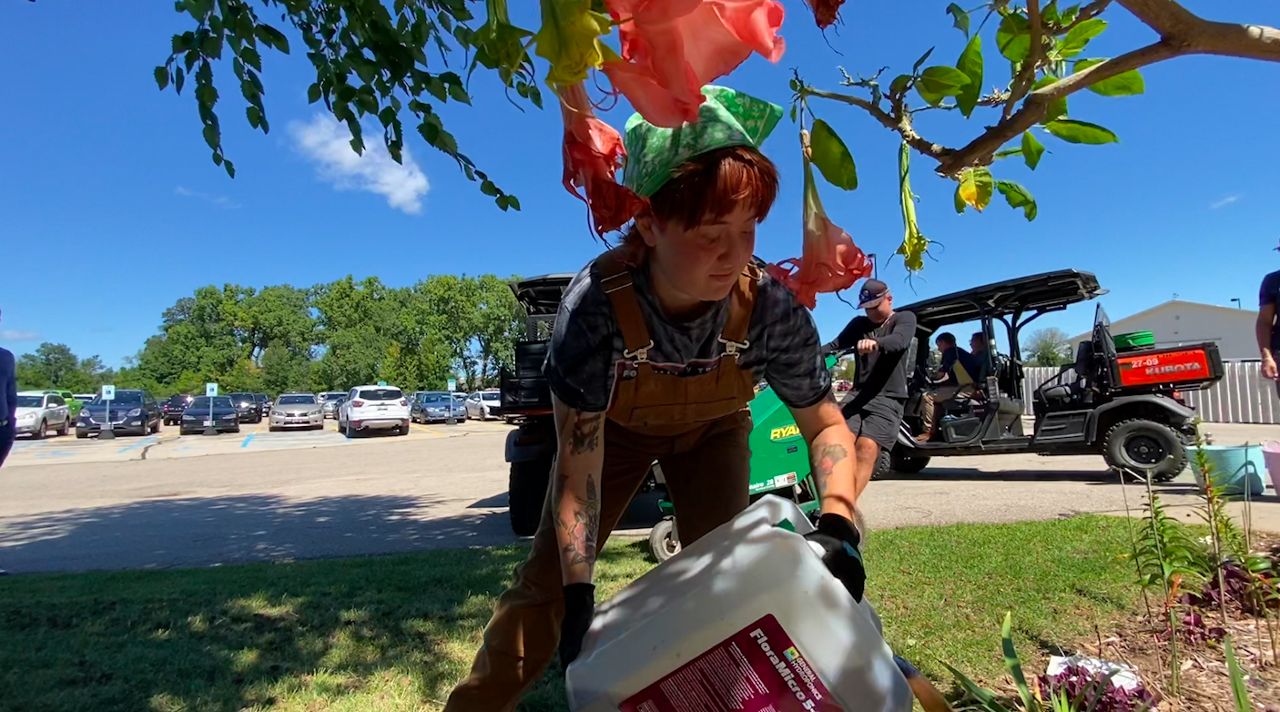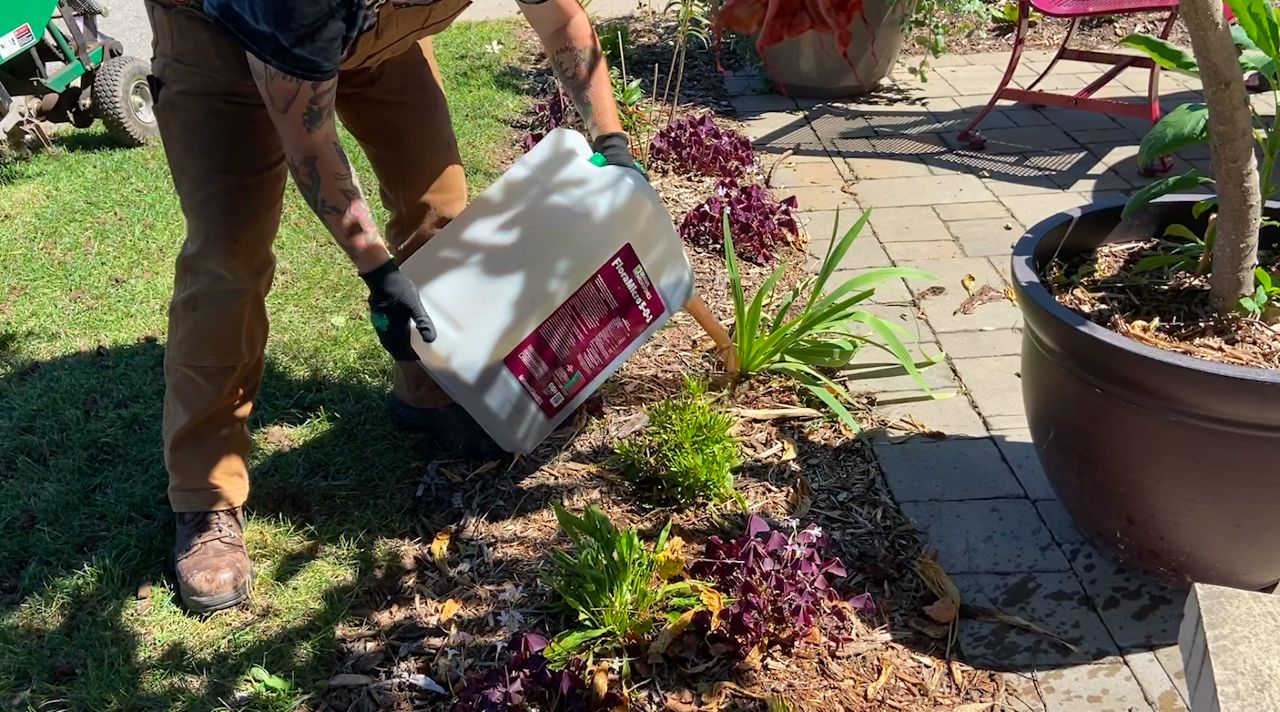GREENVILLE, Wis. — A bright and late summer day was the classroom for a group of horticulture students at Fox Valley Technical College.
What You Need To Know
- Fox Valley Technical College is composting materials for several programs for use on campus
- Most of the compost is mixed back into the turf on campus
- The goal is to reduce the amount of fertilizers and pesticides used on campus while teaching students about sustainability
The students spent about two hours spreading solid and liquid compost fertilizer on the college campus.
“We’re applying compost tea to the plants,” student Lily Kocha said. “It’s really, really easy to apply and easy to make fertilizer.”
The liquid tea, and its solid counterpart, are made from composting products found on campus.
“We’re re-using food scraps and plant scraps as compost,” Kocha said. “It’s very environmentally friendly and very organic, so we’re not using so many chemicals on the lawn and plants.”

The Culinary Arts program, for instance, produces about 20 gallons of compostable material each day that’s used in the fertilizers.
Landscape and Horticulture instructor Chuck Stangel said the college has been composting for a number of years.
FVTC welding students recently made a modification to the machine. Now, the college both processes and returns that compost to the turf.
“We’re able to turn this raw material that was garbage or waste into a useful product that benefits the college both economically and it benefits it environmentally,” Stangel said.
It’s also part of the learning process.
“What they’re learning is an alternative to traditional law care, which there is a demand for in the industry,” he said. “(It’s) an opportunity to improve soil health and improve the quality of plants both in turf and landscape plants, and flowers and vegetables through all organic inputs.”

Kocha said she’s glad to see the college adopting the practices.
“I feel really proud to be part of it, actually,” she said. “It’s a step forward in the industry, whereas they were using so many chemicals beforehand and now we’re going toward the organic route, which is much more sustainable in the long run for the planet.”



